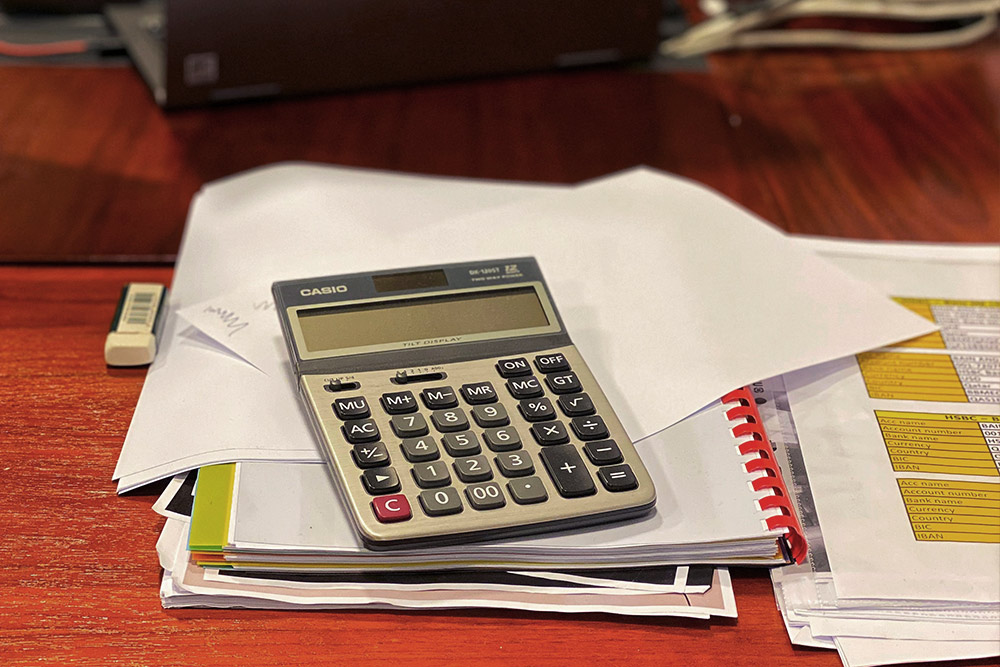Minimizing bad debts comes down to a mix of good financial practices, solid legal awareness, and smart customer management. Here are practical steps you can take to reduce bad debts, especially within the context of Singapore’s business and legal environment:

To minimise the risk of bad debts, it is essential to define your payment terms clearly in writing, such as setting a standard 30-day payment window from the date of invoice. In addition, include penalties for late payments—this could be in the form of late fees or interest—to encourage timely settlement. Before starting any work or delivery, always require the client to acknowledge and agree to these terms in writing, ensuring there is no ambiguity or dispute later on.
Implementing reliable accounting software, such as Xero, QuickBooks, or Sage, can greatly improve your ability to monitor and manage overdue accounts. These platforms offer built-in dashboards and tracking tools that make it easy to stay on top of outstanding invoices. Additionally, you can set up automated reminders for both upcoming and overdue payments, helping to prompt clients without the need for constant manual follow-up.
For high-value projects or when dealing with new clients, it is advisable to request a 50% deposit upfront or structure payments in clearly defined milestones. This approach not only reduces the financial risk of non-payment but also supports healthier cash flow throughout the duration of the project. It ensures that your business is not overly exposed while work is in progress, especially with clients whose payment behaviour is not yet established.
When a payment becomes overdue, it’s important to follow up with the client promptly—approach the situation politely but firmly to maintain professionalism. Start with a courteous email reminder, then escalate if necessary with a phone call, followed by a formal written notice.
If there is still no response and the account remains significantly overdue, consider sending a Letter of Demand through a lawyer to demonstrate the seriousness of the matter. For debts under SGD 20,000, you may file a claim with the Small Claims Tribunals as a cost-effective legal recourse. For larger amounts, it’s advisable to consult a lawyer for civil recovery options. Alternatively, you can also engage a licensed debt collection agency to pursue the debt on your behalf, especially when internal efforts have been exhausted.
Using a debt collector in Singapore can be an effective way to minimise bad debts—if used strategically. Here’s how you can integrate debt collection services into your credit control process without damaging your business reputation or client relationships:
Debt collection agencies should be considered when payment has been overdue for more than 60 to 90 days, especially after you’ve sent multiple reminders and a final demand with no response. At this stage, if the outstanding amount justifies the collection fee—typically between 10% to 30% of the recovered amount—it may be more cost-effective to engage a debt collection agency than to pursue immediate legal action. This approach is also ideal when you want to apply professional pressure without escalating directly to court proceedings.
When choosing a debt collection agency in Singapore, it’s crucial to engage only licensed, professional firms—not aggressive or “ah long”-style collectors, which can damage your business reputation and potentially get you into legal trouble. Look for agencies with a strong reputation backed by positive Google reviews or case studies, as well as transparent pricing models—either flat-fee or commission-based. Most importantly, the agency should operate ethically, in line with Singapore’s Protection from Harassment Act, ensuring that all communication with the debtor is respectful and lawful.
Before hiring a debt collection agency, take time to clarify their fee structure. Some agencies operate on a contingency basis, meaning you only pay if they successfully recover the debt, while others charge a flat rate regardless of the outcome. It’s also important to ask how many contact attempts they’ll make, whether their services include issuing legal letters, and how frequently they provide updates or reports on the case. These details will help you manage expectations and ensure the collection process aligns with your company’s values and objectives.
Before involving a debt collection agency, it’s important to notify your client in advance—typically through a final warning letter—informing them that their account will be handed over for external collection if payment is not received by a specified deadline. When choosing a debt collector, always opt for those who act professionally and within legal boundaries, rather than using aggressive tactics. This approach helps maintain your company’s reputation and relationships, which is especially important in a tightly connected business environment like Singapore.
Contact us here to find out more!